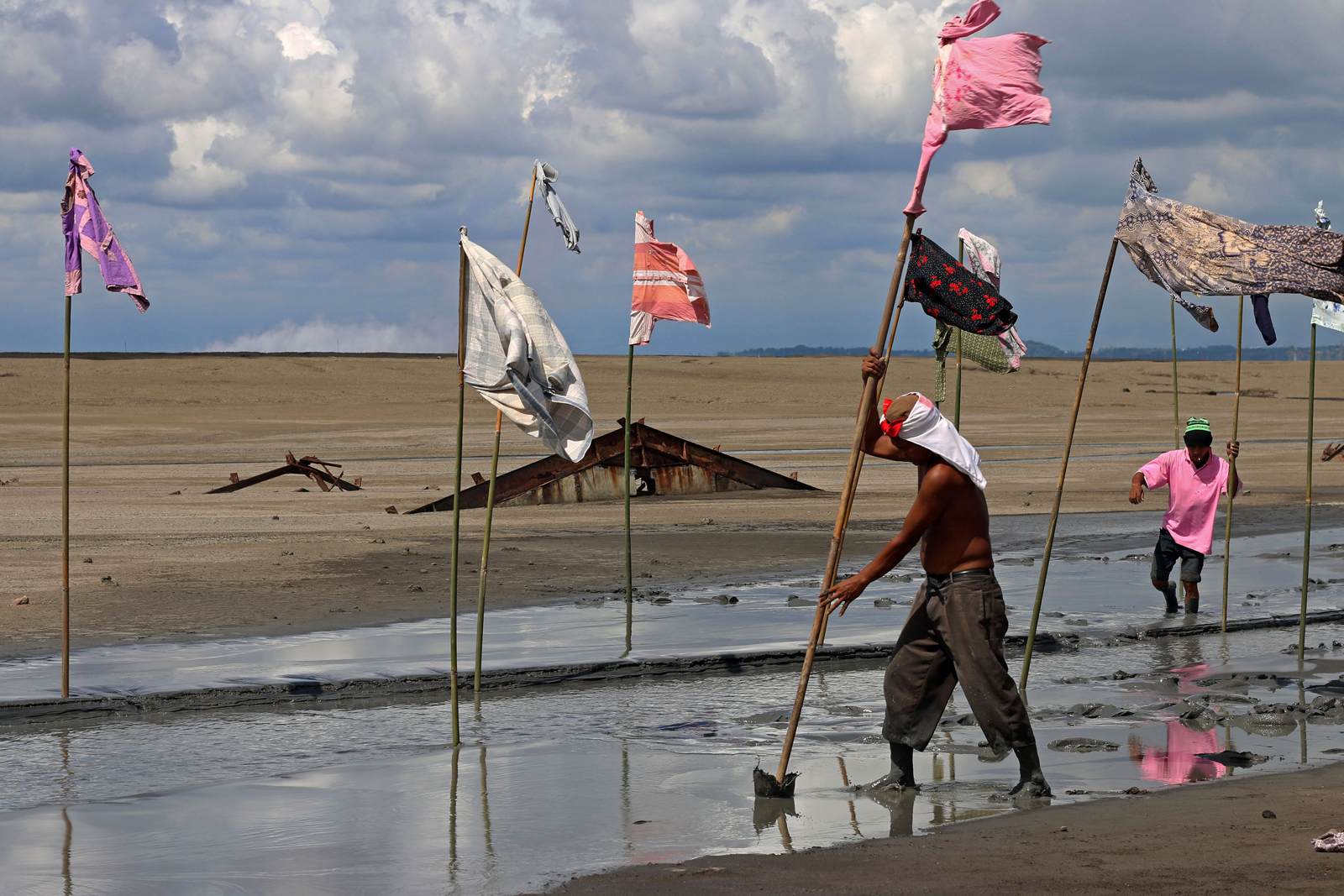Questions of justice are relevant to all aspects of climate and environmental change, from how and where the impacts are felt the most, the allocation and prioritisation of funding, the type of responses that are considered, to how negative impacts can arise from mitigation, adaptation, or restoration policies. Justice dimensions of these range from who gets what, whose knowledge counts, who gets to decide, and ultimately who gets left behind.

A new issue of the IDS Bulletin – ‘Reframing climate and environmental justice’ – features seven articles exploring the ‘blind spots’ in dominant mainstream approaches to climate and environmental justice. It argues that approaches share a tendency to place growth, not ecology, nor climate, and certainly not justice, at the heart of the international policy agenda.
The articles bring together a range of empirically grounded studies that add to – and challenge – some of the dominant views and approaches, and unearth some key ‘hidden’ aspects of the justice dimensions of climate and environmental change. In particular, this IDS Bulletin highlights three major ‘blind spots’ in climate and environmental justice debates: a persistent failure to recognise diverse contexts and knowledges; continuing failure to sufficiently appreciate the deep-seated contestations around climate and environmental justice; and the risks associated with ‘recovery’ and ‘emergency’ mindsets driving climate and environmental policy agendas.
‘Reframing climate and environmental justice’ also seeks to offer principles to address those ‘blind spots’ in order to move towards more just and inclusive pathways for climate and environmental policy processes. In doing so, the articles recognise that there will be variation – across sites and social groups – in the needs, aspirations, and meaningful notions of justice for those who experience the greatest vulnerabilities in the face of change. True solutions may require that powerful political and economic actors’ interests are challenged or that dominant forms of ‘expertise’ are questioned. Approaches to climate and environmental justice must reject efforts to apply one-size-fits-all solutionism.
The editors of this issue, Lars Otto Naess and Amber Huff say:
“A reframing of contemporary debates on climate and environmental justice is urgently needed in order to address the ‘blind spots’ in dominant mainstream views in current policy and practice. There are still important gaps in the inclusion of marginalised actors and their knowledge in decision-making for climate action. By challenging current debates, the articles in this IDS Bulletin offer principles to reframe – and refocus – the justice agenda, in order to move towards more just and inclusive pathways for processes.”
About the editors
Dr Amber Huff is a social anthropologist and political ecologist. She is a Research Fellow at the IDS where she is a member of the Resource Politics Cluster and leads the recently launched Centre for future natures. Her recent and ongoing research investigates relationships among environmental policy change and wellbeing at the political and geographic margins, examines the role of land and investment reforms in exacerbating conservation and mining-related conflicts, and considers how dominant discourses of scarcity and security are increasingly entangled with both scientific framings of environmental change and sustainable development policy.
Dr Lars Otto Naess is a social scientist with more than 15 years experience with climate change, development and agriculture. A research fellow at IDS, his research interests include social and institutional dimensions of adaptation to climate change, policy processes on climate change and agriculture at national and sub-national levels, the role of local knowledge for adaptation to climate change, and adaptation planning in the context of international development. Much of his recent work has focused on Africa, in particular Tanzania, Kenya, Malawi and Ethiopia.